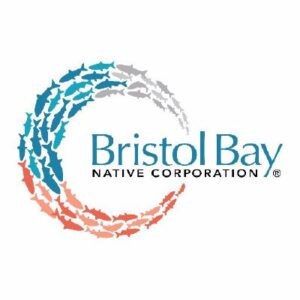
Two Bristol Bay region entities have filed an amicus brief with the U.S. Supreme Court to counter Alaska Gov. Mike Dunleavy’s lawsuit against the Environmental Protection Agency’s Clean Water Act veto of the proposed Pebble mine in Southwest Alaska.
“EPA finalized Clean Water Act protections in Bristol Bay with the strong support of the people of our region and across Alaska,” said Russell Nelson, board chair of the Bristol Bay Native Corp. (BBNC), which has offices in Dillingham and Anchorage.
The EPA’s work in Bristol Bay, Nelson said, “is grounded in solid science and an important regulatory obligation to protect the invaluable salmon resource that has sustained our people since time immemorial.”
He also said in a Nov. 9 statement issued by BBNC and United Tribes of Bristol Bay (UTBB) that he found it “extremely disappointing” that the state “is seeking to prop up a mine proposal that science and federal administrations of both parties have roundly rejected.”
“BBNC and our shareholders will never back down from the fight for our water, our fish, our economy and our way of life,” he said.
“Gov. Dunleavy is completely out of touch with the people he claims to represent with this outrageous lawsuit,” UTBB Executive Director Alannah Hurley said.
While the majority of Alaskans have urged elected leaders to stop the mine, Dunleavy “is clearly on a reckless mission to defend this dead project regardless of the law, science and cost to Alaskans,” she said, adding that the governor is using limited state resources to pursue “an expensive and extremist lawsuit on behalf of a foreign mining company.”
Litigation over the mine has been ongoing for over two decades. Proponents contend that the mine would provide many jobs and a boost to the economy of Southwest Alaska, benefitting both the region and the state.
Opponents contend that the mine would have a devastating adverse impact on the region’s multi-million-dollar salmon fishery, which benefits commercial, sport and subsistence users, as well as an extensive number of wildlife, including bears and eagles, that call the region home.
The Supreme Court is likely to decide by year’s end whether or not to hear the case.
The Dunleavy administration on July 26 announced its decision to challenge in the U.S. Supreme Court the EPA’s decision barring the U.S. Army Corps of Engineers (USACE) from issuing a permit under Section 404 of the Clean Water Act for 309 square miles of state land in Southwest Alaska where the Pebble Partnership, a subsidiary of Hunter Dickenson Inc., a diversified, global mining group based in Vancouver, B.C., seeks to build a copper, gold and molybdenum mine.
The tract abuts the Bristol Bay watershed.
The state’s July 26 brief contends that Alaska is constitutionally required to protect its natural resources for the maximum benefit of its people.
“Alaska is responsible for utilizing, developing and conserving all the state’s natural resources for the maximum benefit of its people,” Dunleavy said. “Bureaucrats in Washington D.C. are exercising unbridled and unlawful power to choke off any further discussion on this important decision affecting so many Alaskans.”
The state’s brief seeks a declaration that the EPA’s veto is unlawful and an order setting it aside. Alternatively, the brief said, the state seeks damages for a breach of contract and just compensation or a taking.
